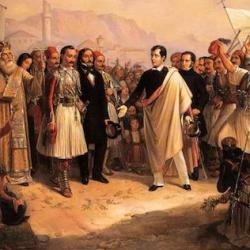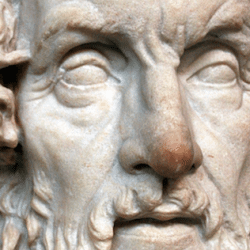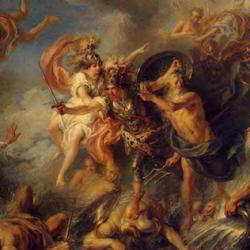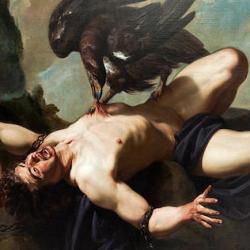In an essay on manhood and heroism in Homer, Michael Clarke describes Achilles’ towering rage as he returns to the field to avenge Patroclus, and asks: “is Achilles’ heroic excellence fulfilled or undone by his wildness as he moves towards death? The poem forbids us to frame an easy answer. Perhaps, however, there is no more authentic response to the crux than the interpretation of Achilles which Plato puts in Socrates’ mouth in the Apology. Addressing a jury of everyday fifth-century Athenians, Socrates invokes Achilles as a model for his own decision to die for the sake of his philosophical ideals, not because of the hero’s moral or military prowess but because of the unflinching determination with which he accepts that death will be the price of avenging Patroclus.” In this sense, the heroism of Odysseus and of Achilles, for all their evident differences, is equivalent: Both accept death as the inevitable consequence of the decisions they make. This is the inherent Stoicism of the ancient Greek heroic mentality.
Clarke also places the notion of heroism in a Hesiodic scheme of the four/five ages, suggesting that what defines a hero as hero is simply belonging to a particular generation in the history of declining vigor that is human history. Odysseus’ vengeance against the suitors is in this context “the heroic race asserting supremacy over later and lesser men.”
He finally summarizes the wisdom offered by the Homeric epics in words taken from Simonides: “Since you are human, you cannot say what will happen tomorrow, and when you see a man prospering you cannot say how long he will last: for his death comes more swiftly than a slender-winged mayfly swept away.” This is the wisdom of Ecclesiastes – crucially, absent the exhortation to rejoice and the confidence in a sovereign God.















